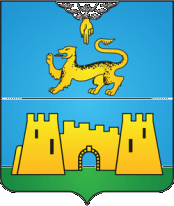Porkhov

The name Porkhov comes from an old Russian word “porkh”, which, translated into modern language, means a small particle of earth – dust, ash. The name of Porkhov can also be interpreted as the “city on a stone”.
The main historical purpose of the city was to strengthen the borders of Veliky Novgorod from the neighbours raids – Lithuania and the Livonian Order. The Prince of Novgorod Alexander Yaroslavovich (a year later called Nevsky, and two more years after he had already defeated the knights) ordered to build towns on Shelon’s banks and one of three fortifications appeared on the right bank of Shelon was the wood-earth fortress of Porkhov. The city was founded in 1239. Porkhov, occupying a convenient geographic and strategic location, developed increasingly. At first it was just a Slavic settlement, then a hillfort made of wood, earthworks and ditches, surrounded by waters of the Shelon river and the Dubyanka river, which flows into it.
For several decades, the hillfort played a role of a defensive structure. The ancient stone fortress (built in 1387) confirms the increased role of Porkhov as an outpost of the Novgorod Veche republic. The Porkhov fortress withstood the siege of the Lithuanian troops of Olgerd princes (1346), Vytautas (1428), and Polish troops of Stefan Batory (1581). In 1611-1617, during the Time of Troubles it was captured by the Swedes. At the end of the 15th century, after Novgorod was annexed to Moscow, the fortress was on the second line of Russian defensive structures and remained a military until 1764. In the 15th century, a road from Moscow to Poland passed through Porkhov, which provided a great opportunity for the city development. Noble people often stayed here – foreign ambassadors, merchants and clergymen. The favourable location contributed to the rapid trade development, a station palace was built; there was its own market around it, which brought together merchants from Novgorod, Pskov and craftsmen from the surroundings. Since the end of the 15th century, Porkhov was part of the so-called Shelon Pyatina. The settlements closest to the city formed its outskirts, there were 147 villages in it, Porkhovskoye bordered with Pskov lands. Since 1708, Porkhov was part of the Ingermanland province, which was subsequently renamed St. Petersburg. In 1776, Porkhov was added to the territory of the Pskov province, and on August 23, 1777 it became its county town. The Shelon River flows into Lake Ilmen; 80 mills worked on the river bank (in 1894), 30 blueing manufactures, 14 tanneries, there were creameries, brick and candle factories, breweries throughout the river from source to mouth. After the bridge was built in 1905, the traffic through Porkhov started in all directions: to Novgorod, Pskov, to Moscow through Velikiye Luki, to Smolensk, to the Baltic lands. Many nobles, landowners, military leaders invested funds to build cottages, built estates, set up parks and gardens on Porkhov land. At the end of the 19th century, the Vindavo-Rybinsk railway through Porkhov was built; in 1897, the station building was built. At the end of the 18th century, active construction of the city began, numerous streets and alleys appeared, Torgovaya Square, Trinity Cathedral, Annunciation Church, drinking houses, a brewery, a commercial bank, private and public buildings were being built. In the 19th century, a drama theater worked here; sheepskin-fur coat factory, winery, twine factory, and many different workshops were large industrial enterprises.
From July 10, 1941 to February 26, 1944, Porkhov was occupied by German troops. The city died out, buildings were 90% destroyed. After the liberation, the Porkhovichs rebuilt the city, preserving the layout of the late 18th century. In recent years, significant changes have occurred in the city’s infrastructure.





